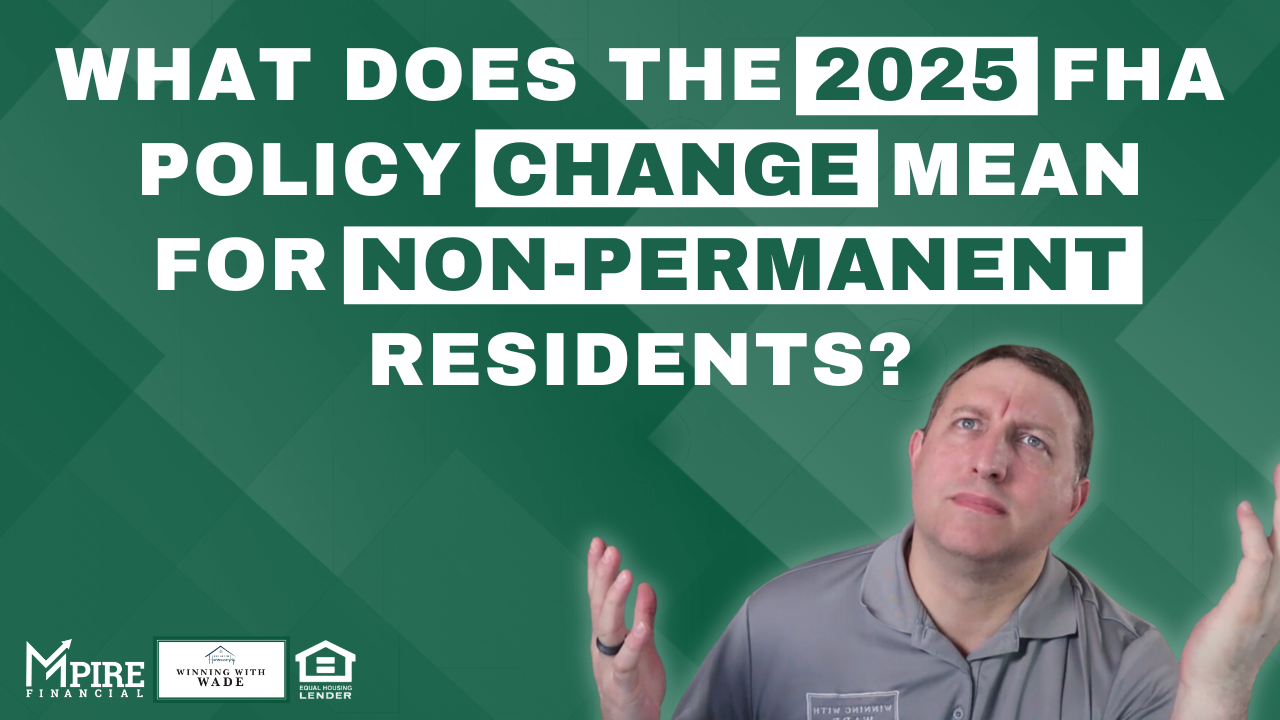The Federal Housing Administration (FHA) has long been a vital tool for helping Americans achieve…
Top 20 Tips for First-Time Home Buyers
Buying your first home is an exciting journey, but it can feel overwhelming with so much to consider. Don’t worry—I’ve broken it all down for you in a friendly, easy-to-follow way. Here’s everything you need to know to set yourself up for success!
1. Request a Loan Estimate
When you apply for a mortgage, lenders often tell you the maximum amount you’re approved for—but that doesn’t paint the full picture. A loan estimate is the key. This document breaks down your expected monthly payment, taxes, insurance, and fees.
It’s a powerful tool to help you understand what your purchase will actually cost. Don’t wait until you’re under contract—ask for it upfront! Most lenders won’t give it unless you request it.
2. Get Multiple Mortgage Quotes
Think of getting a mortgage like shopping for a car. You wouldn’t buy the first one you see, right? By comparing at least three quotes, you’ll know who’s giving you the best deal on interest rates and fees.
Don’t worry about your credit score taking a hit—it’s okay to shop around as long as you do it within 30 days. Your future self (and wallet) will thank you for doing your homework!
3. Start Thinking About Homeownership Early
Even if buying a home feels years away, it’s never too early to plan. The sooner you consider homeownership as an option, the sooner you can start saving and building a strategy.
For example, could you start setting aside some money at 18? Could you research how homeownership builds wealth? Little steps now can lead to big rewards later.
4. Recent Graduates Can Qualify for Mortgages
Did you know your years in college might count as work history? Yep! If you’re a recent graduate with a steady job, you could qualify for a mortgage without waiting two years to build up a traditional work record.
This is great news if you want to buy sooner rather than later. Just make sure your credit and savings are in good shape to strengthen your application.
5. Think Beyond Single-Family Homes
First-time buyers often imagine a cozy single-family home, but don’t overlook multifamily properties like duplexes or triplexes. These allow you to live in one unit while renting out the others, giving you an extra income stream to help with your mortgage. It’s a fantastic way to start building wealth early!
6. Look Into Down Payment Assistance
Saving for a down payment is one of the biggest hurdles for many buyers, but here’s the good news: all 50 states offer assistance programs specifically for first-time buyers.
Some provide grants, while others offer low-interest loans that don’t need to be repaid until you sell or refinance. It’s worth researching your state’s programs—there could be thousands of dollars available to help you out!
7. Get Pre-Approved Early
Even if you’re on the fence about buying, getting pre-approved for a mortgage is a smart move. Pre-approval gives you a clear picture of what you can afford and shows sellers you’re a serious buyer.
Plus, if you’re not approved, you’ll learn exactly what to work on, whether it’s boosting your credit score or paying down debt.
8. Never Skip a Home Inspection
A home inspection is like getting a health check-up for your house. It reveals potential issues like a leaky roof, faulty wiring, or structural problems. Even new construction homes need inspections!
Sure, it might cost $350–$500, but skipping it could cost you thousands in hidden repairs later. Don’t skimp on this critical step.
9. Understand HOA Rules
If you’re buying in a neighborhood with a homeowners association (HOA), make sure you understand the rules (called covenants) before committing. Some HOAs have strict guidelines on landscaping, exterior paint colors, or even where you can park. Knowing these rules ahead of time will save you from unpleasant surprises.
10. Think About Resale Value
Your first home doesn’t have to be your forever home, but you’ll likely want to sell it someday. When choosing a property, consider how attractive it will be to future buyers. Homes in neighborhoods with good schools, low crime, and convenient amenities typically hold their value better and sell more quickly.
11. Choose the Right Real Estate Agent
Not all agents are the same. Some specialize in certain types of buyers, like first-timers, veterans, or those using down payment assistance. Ask your agent about their experience and whether they’ve worked with buyers like you. It’s important to feel confident they understand your needs and goals.
12. Organize Your Financial Documents
Before applying for a mortgage, gather your pay stubs, bank statements, tax returns, and other financial documents. Having everything ready upfront will make the process smoother and prevent delays. Trust me—being organized here will save you a lot of stress!
13. Prioritize Neighborhood Quality
Your home is part of a larger community, so choose a neighborhood that fits your lifestyle. Look for low crime rates, good schools, and access to amenities like parks or shopping. Even if it means a smaller house, a great neighborhood can make all the difference in your quality of life.
14. Inspect Older Homes Carefully
Older homes have charm, but they can also come with hidden costs. Make sure big-ticket items like the roof, HVAC system, and water heater have been replaced or are in good condition. A thorough home inspection can help you spot any potential problems before you buy.
15. Negotiate for Closing Costs
Did you know the seller can help pay your closing costs? Many buyers don’t realize this is an option. Work with your real estate agent to negotiate how much the seller might contribute. This can significantly reduce your out-of-pocket expenses.
16. Explore No Down Payment Mortgages
You don’t always need a large down payment to buy a home. USDA loans (for rural areas), VA loans (for veterans), and certain credit union programs offer 100% financing. If you qualify, these loans can be a game-changer for your budget.
17. Know Your Contract Protections
Your purchase contract may include important safeguards, like:
- Due Diligence Period: Time to inspect the home and back out if needed.
- Finance Contingency: Protects you if your loan falls through.
- Appraisal Contingency: Allows renegotiation if the home doesn’t appraise for the agreed price. Ask your agent to explain these protections and ensure they’re included in your contract.
18. Don’t Sign What You Don’t Understand
Buying a home is one of the biggest financial decisions of your life. If you’re unclear about something in your contract or loan documents, ask questions.
Never feel pressured to sign anything you don’t fully understand. And remember, verbal agreements don’t count—get everything in writing!
19. Budget for Additional Fees
Homeownership involves more than just the down payment. Be prepared for costs like earnest money, inspection fees, and closing costs. Knowing these upfront will help you avoid surprises and stay within your budget.
20. Watch Out for Post-Purchase Scams
After you buy a home, your deed becomes public record, which can attract scammers. Be cautious of letters or emails asking for payments or personal information. Verify anything suspicious with your agent or closing attorney to avoid falling victim to fraud.
Bonus Tip: Plan for Long-Term Costs
Owning a home isn’t a one-time expense. Over time, your property taxes and homeowners insurance may increase, especially if your home’s value rises. While these changes are usually gradual, it’s smart to keep an eye on them and adjust your budget as needed.
Final Thoughts
Buying your first home is a big step, but with preparation and the right mindset, you can make it a rewarding experience. Take your time, ask questions, and lean on professionals to guide you through the process.




